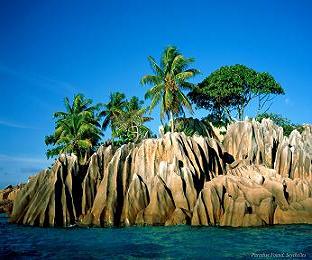
 |
|
|
|---|
| Ocean conservation. The oceans make up more than 70 percent of the earth's surface and provide homes to vast numbers of living species. They also help keep the world's climate from becoming too warm. Oceans do this by storing carbon dioxide gas and preventing too much of the gas from entering the atmosphere. Atmospheric carbon dioxide warms the earth by absorbing heat from the sun. |
 |
|---|
The oceans receive ever greater amounts of pollution as human population grows and shipping increases. Industrial wastes often find their way into the oceans, either directly or indirectly through rivers. Single accidents involving large oil tankers can foul an entire coastal region, killing thousands of living things. Underwater mining and excavation spills such toxic materials as heavy metals and pesticides into ocean waters. Every year, people also throw millions of tons of litter into the oceans from ships. Millions of seabirds, turtles, fish, and marine mammals die annually from becoming entangled in or consuming discarded plastic items in litter. Concentration of pollutants also renders beaches unsafe for people.
Overharvesting ranks as the other major threat to marine biodiversity. With the advent of mechanized fishing boats, overfishing increased dramatically. Many formerly productive fishing areas, including those for cod and haddock, declined greatly. Many sea creatures becomebycatch-that is, species caught accidentally in nets set for other species. Endangered marine turtles, for example, are trapped in nets used to catch shrimp. Globally, overfishing and pollution have combined to cause a sharp decline in the total number of fish caught in the ocean since 1989. The total fish harvest increased, however, because of increases in aquaculture, also called fish farming.
Many international conservation problems involve marine animals and other ocean resources. International agreements and rigorously enforced limits on catch have saved certain international fishing areas, such as those for Pacific halibut. On the other hand, the commercial hunting of whales remains an international problem. Because of overhunting, several species of whales verge on extinction. The International Whaling Commission (IWC), an organization devoted to conserving whales, recommends that all nations should completely stop commercial whale hunting. But not every country has agreed with this recommendation. |
|---|
.. . |
|
||||||||||||
|---|---|---|---|---|---|---|---|---|---|---|---|---|